Our garden standards
As a Red Kite tenant, we want you to be proud of your home and the community you live in. This means keeping your garden and/or outside space in a tidy condition. It is also a condition of your tenancy and includes the following:
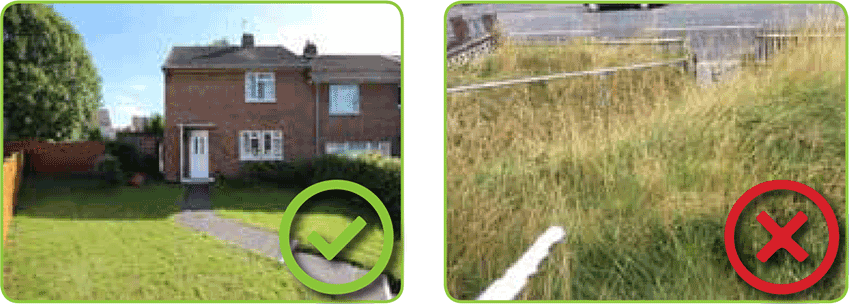
Grass to be regularly mowed
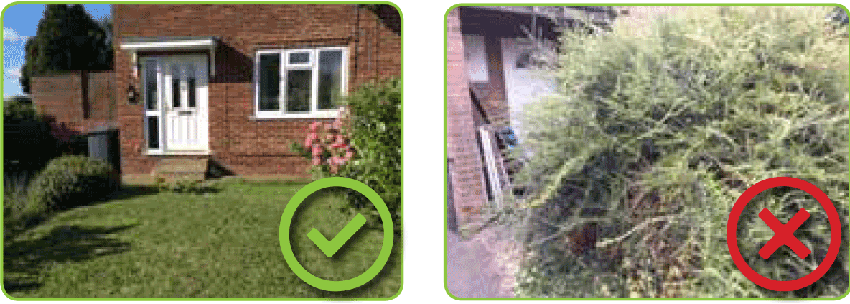
Bushes and hedges to be trimmed*
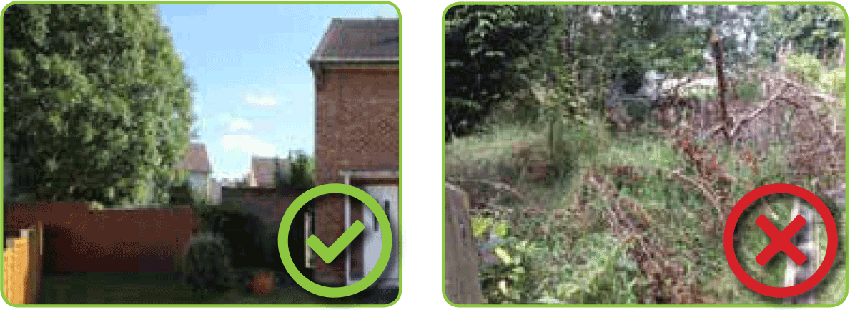
Trees to be maintained
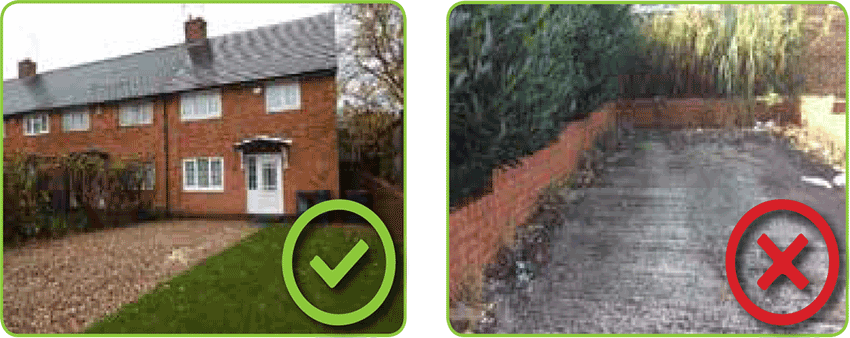
Paths, driveways and gardens to be kept clear of weeds and overgrowth
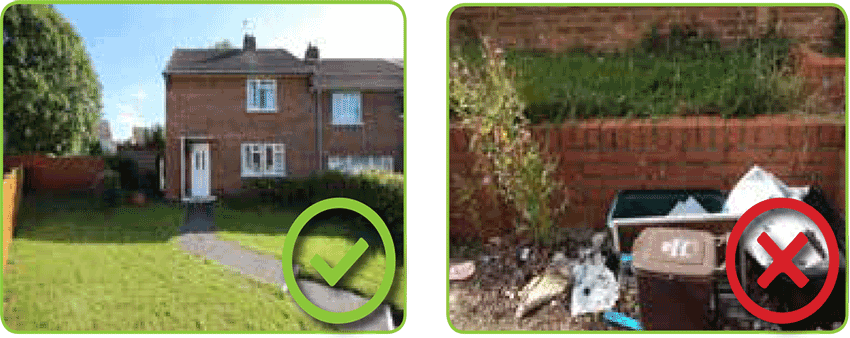
No rubbish to be stored in the garden
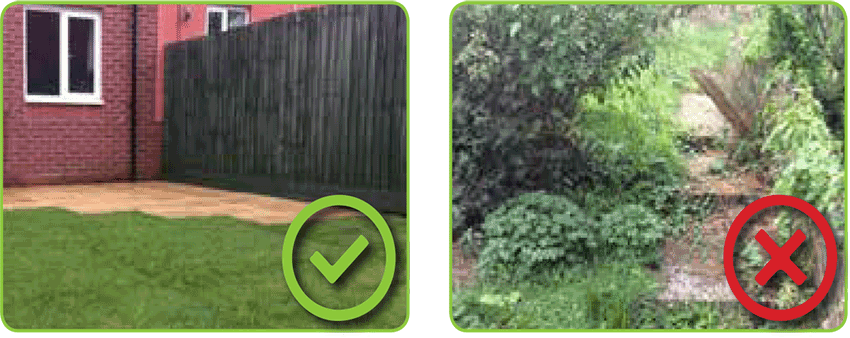
Fences to be in good repair
We will not accept:
- Eyesores – such as cars in a poor condition, tyres, old white goods, mattresses, or skips not removed
- Health and safety risks - such as dog mess, broken glass, unsanitary objects, piles of cigarette butts.
You must:
- Keep all pets, such as dogs, securely and not allow them to cause a nuisance to neighbours or passers-by
- Get formal written permission from us for any out-buildings, sheds, patios, ponds, driveways – and you will need to keep these in good repair.
It is a condition of your tenancy agreement to keep your garden maintained. If we notice an untidy garden, then a member of our Community Team will contact you to discuss what you need to do to bring it back up to standard.
We know that a garden can be a lot of work, so if you need help you can contact our Grounds Maintenance contractor, who will provide you with a quotation to do gardening tasks for you. For their details, please contact our Relationships Team. Please note that we do not do gardening work for free and it is your responsibility to keep your outside space in good order.
If you have any concerns about your garden or boundary, including any repairs such as broken walls or dangerous trees, please contact us on 01494 476100 or email contact@redkitehousing.org.uk.
Nesting birds
Hedges and trees should not be cut back between 1st March and 31st August, except in the case of a serious health and safety risk, as this is the main breeding season for nesting birds.
Nesting birds are protected by law (The Wildlife and Countryside Act 1981) which made it illegal to intentionally kill, injure, or take wild birds, or damage or destroy their nests or eggs.
Even outside of the usual nesting season - which in recent years has begun up to a month earlier than previously as a result of climate change - before any work is done you should check to ensure no nesting birds are present. If nesting birds are found whilst working on a hedge or tree, you should stop work immediately, and create a 'buffer zone' to protect any chicks until they leave the nest.
Ivy
Ivy (or other climbing plants) growing up brickwork may look decorative, but did you know:
- Ivy is a vigorous climber that attaches itself using aerial roots. These roots can penetrate cracks or joints in walls, potentially causing structural damage over time
- Ivy can hide defects in the building fabric, making maintenance challenging
- It can stop the wall drying out properly after rain, leading to problems with damp and mould.
Under the terms of your tenancy, ivy and other climbing plants must not be allowed to grow against the exterior of your home and should be removed.
How to remove ivy or other climbing plants:
- Sever the vines:
- Cut off the vines and aerial roots from the base of the plant
- Gradually pull away at the vines
- Remove the dead plant:
- After a couple of days, detach any dead plant material from the walls with a hard brush or paint scraper
- Dispose of the dead plant with your green waste
- Ground roots treatment:
- Apply a weedkiller to the plant’s ground roots to prevent regrowth
- Scrape off any remaining rootlets and tendrils with a steel brush.
Japanese knotweed
Our tenants are responsible for the maintenance and upkeep of their own gardens, but there are certain exceptions to this rule where we will remove diseased or dangerous trees or plants from our tenants' gardens or other land that we own. This may be rechargeable depending on individual circumstances.
Japanese knotweed (Reynoutria japonica) is one such plant - tenants can report the presence of knotweed in their garden using our Communal Spaces Report form. Knotweed spreads very quickly and easily, so it’s important that it is reported to us as soon as it is discovered.
Sheds and greenhouses
You’ll need to get formal written permission from us before putting up sheds or greenhouses. We won’t grant permission for very large structures or sheds which cut out neighbour’s light or views, and you shouldn’t put structures against boundary fences.
We recommend that sheds and greenhouses have a concrete base to improve the lifetime of the structure. Sheds should also be built on timber supports/joists, on top of the concrete base.
Keep in mind that any outdoor structures you install or that are gifted to you will be your responsibility to maintain and keep to a good standard. They may need to be removed when you vacate your property at the end of your tenancy, and we may recharge you if we have to do this.
Report an untidy garden or outdoor space
Have you spotted a garden or outdoor space that needs our attention? Please complete our Communal Spaces Report form and our team will be in touch.
Note: If you're not sure whether the garden or outdoor space belongs to us or the council, get in touch with us and we'll let you know.
If you need to report something urgent, and you're not reporting during working hours, please use our out-of-hours service instead, by calling 01494 476100.
